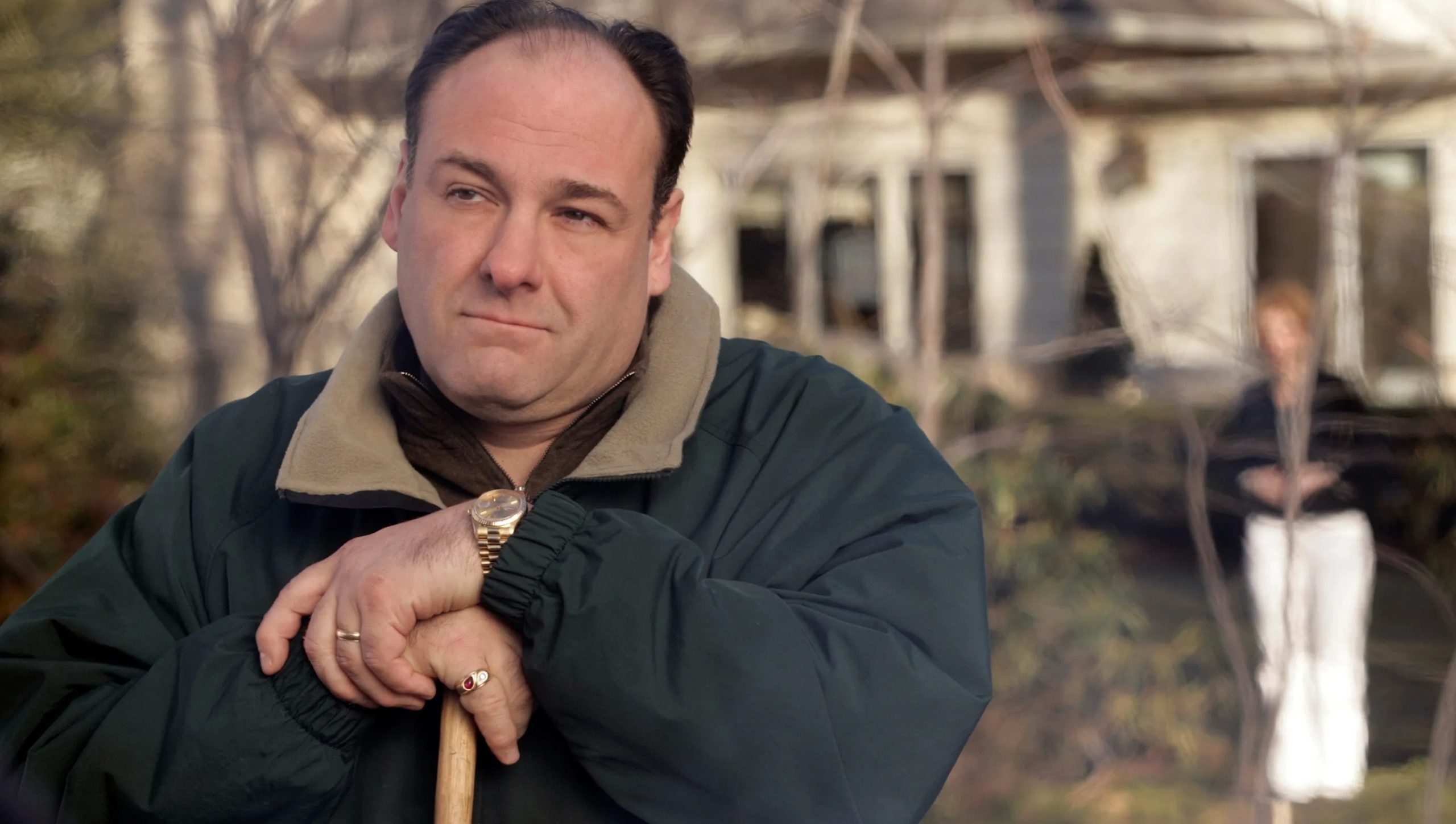In the middle of Bates College in Maine, Tony Soprano stands, a skeptical expression on his face, puffing on a cigar, waiting for his daughter, Meadow, to exit an information session. As students in backpacks, shorts, and baseball hats pass by, a bell tolls in the distance.
The sunny, tree-lined campus looks familiar to the viewer, reminiscent of Drew University in New Jersey, just five minutes from the narrator’s childhood home, where they had attended soccer practices and summer camps.
Yet, amidst this familiarity, Tony Soprano himself looks familiar, embodying a certain Italian American skepticism towards institutions of higher education.

For many Italian immigrants and their descendants, knowledge was highly valued, but knowledge acquired in grand, imposing buildings was often viewed with suspicion.
When Meadow shares a student’s quip that Bates “is the world’s most expensive form of contraception,” Tony is visibly disgusted. He oscillates between being an overprotective father, cracking jokes one moment and scowling the next.
This relatability and repulsion towards the characters lie at the core of the show’s brilliance. This paradox is evident in the episode where this scene takes place, making it an excellent starting point to delve into the series as it celebrates its 25th anniversary.
“College,” the fifth episode of The Sopranos’ debut season, first aired in February 1999 on HBO. Despite its early placement in the series, the episode showcased Tony Soprano as a complex anti-hero, brilliantly portrayed by the late James Gandolfini.
Tony is a deeply flawed man, selfish and morally questionable, yet his occasional moments of decency and vulnerability make viewers believe in the possibility of his redemption.
As Tony navigates the college tour with Meadow, he reflects on his own brief stint at Seton Hall University, highlighting the early generation Italian American experience—desiring social ascent while preserving ethnic authenticity.
Throughout the series, Tony strives to maintain a facade of respectability as a successful businessman, a necessary guise to evade law enforcement, but also an aspirational identity. However, his criminal underworld connections constantly pull him back, blurring the lines between his two worlds.
The episode’s setting alternates between Maine and New Jersey, highlighting Tony’s dual life. While he engages in the college tour with Meadow, he simultaneously pursues a mob informant in Maine. This juxtaposition underscores his fate—he is, at his core, a mobster, and this identity pervades every aspect of his life.
Meanwhile, back in New Jersey, Tony’s wife, Carmela, interacts with the local parish priest, Father Phil Intintola, revealing a subtle tension and potential for a deeper relationship. Carmela’s discovery of Tony’s therapy with Dr.
Melfi and Father Phil’s subtle advances create a complex web of relationships, highlighting the moral ambiguities and desires that drive the characters.
Ultimately, “College” encapsulates the timeless struggle within The Sopranos—Tony’s constant battle between being a father and a criminal.
As the series progresses, this conflict intensifies, culminating in a finale that leaves viewers questioning Tony’s fate. But the true turning point was set early on when Tony had to decide between his roles as a father and a killer—and he chose both.


